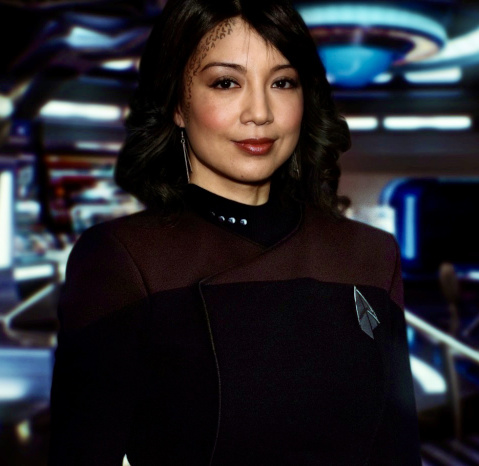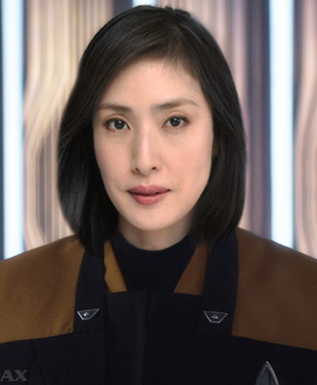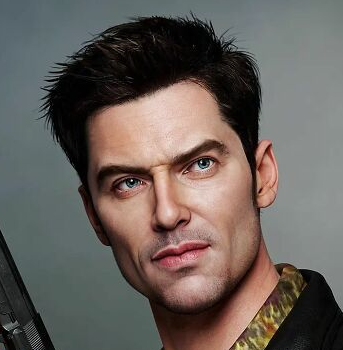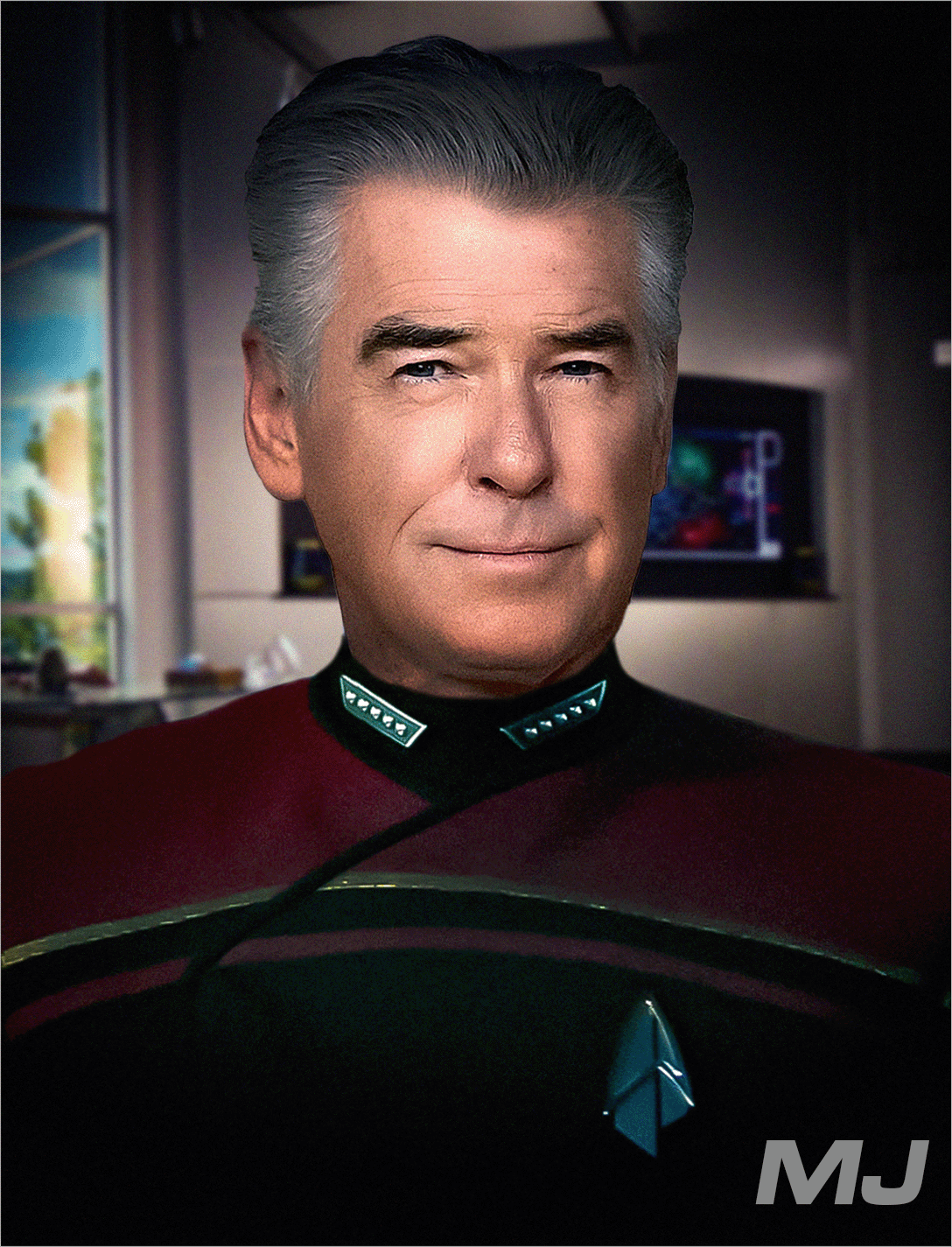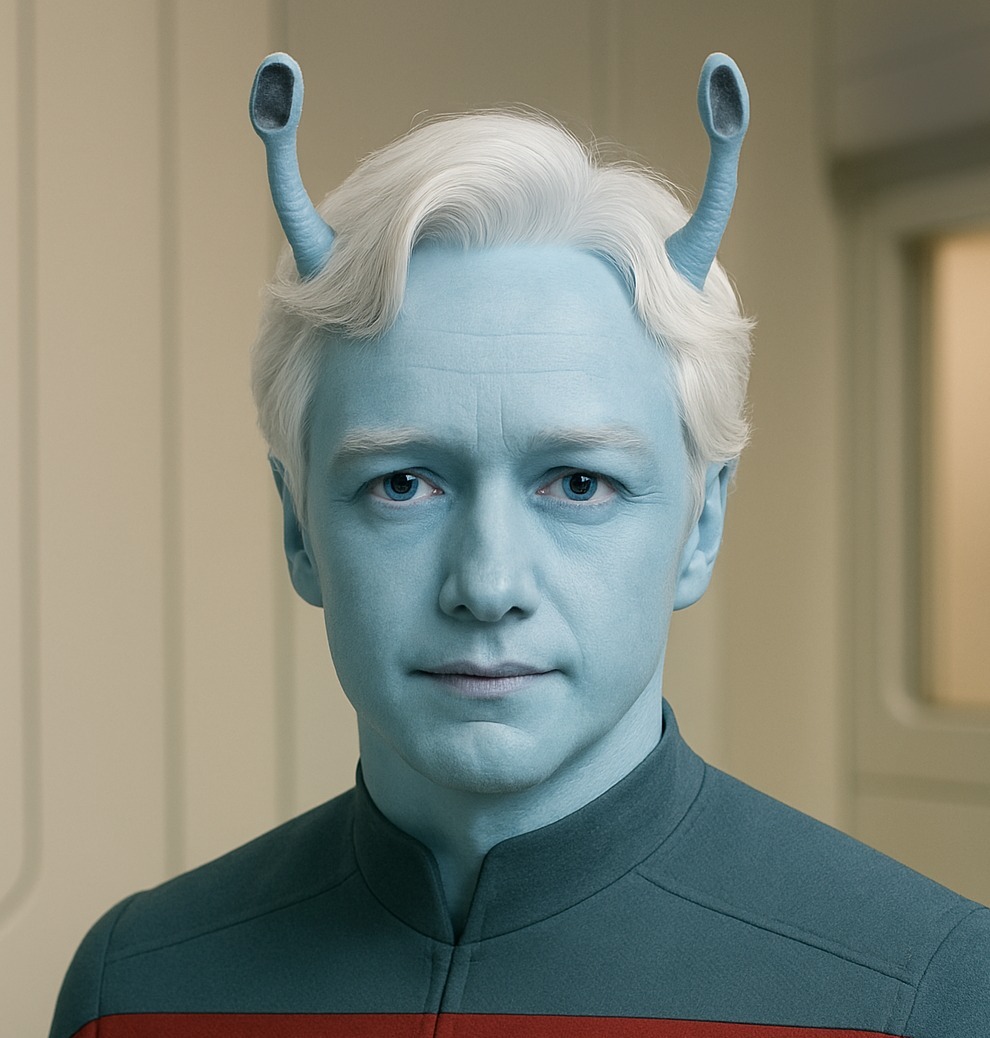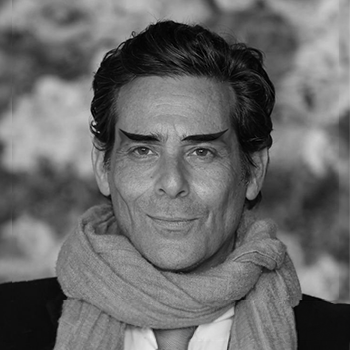There was a kind of blue stillness to the lights on the bridge when the hymn came through. Freighters were happiest that way – soft, uneventful – the artificial dusk persuading everyone that the next twelve hours would be as plain as the last twelve. Captain Ireton had long believed in this superstition. She was not a religious woman, despite a childhood attending incense-heavy chapels. She kept her faith quietly in engineering rituals and systems checks. And in a crew who could be relied upon to turn up to their shifts without complaint and with the patience to coax a stubborn freighter back to life. She believed in maintenance. She believed in spare parts catalogued and labelled. And she believed, without drama, that the universe rewarded steadiness.
So when the hymn slid into the open channel, thin at first, as if leaking through a bad gasket, her first reaction was an engineer’s, not a mystic’s. She asked Juril at comms to check the filter, and called for noise reduction, and asked her helmsman to verify that the Veldur had not accidentally tuned itself to a civilian devotional broadcast. Only when the voice clarified into words did she think of anything beyond interference.
“Entropy is the cradle of light,” it said, with the calm of a bedtime story. “The veil opens, and the faithful rise.”
Ireton felt the bridge crew tune into the sound. There were seven of them on duty. Serin, a thoughtful man who would rather be anywhere than at the centre of events; Juril, the quiet one, who would read poetry at lunch; Deken at helm, tapping one finger on a private rhythm; two cargo hands training up on night watch; and Ortok, her engineer, already glancing between her captain and the console as if she might be personally responsible for the strange transmissions from the dark. It was the kind of crew that made a freighter feel like a home rather than just a ship. A set of people with their own self-healing habits, a sort of domestic gravity that kept them in orbit around one another. They listened, and the little noises of the bridge fell away until the only thing left was the voice.
“Source?” Ireton said.
Juril’s fingers moved without fuss. She was the kind who never raised her voice, which Ireton had come to trust. “Not subspace proper. Close. Local, even.”
“Local how?”
“In the system, captain. It might be rebroadcast around us? Reflections from metallic asteroids?”
“We are not in an asteroid belt,” Ortok murmured, and Ireton could hear, under the quip, the familiar effort of refusing fear a foothold.
The hymn shifted. For a second the voice blurred, as though it had turned its head in a great empty room. Then other voices joined it, not harmonising so much as emphasising them with each breath. “Entropy is the cradle of light. The veil opens.”
Serin stood without being asked and came forwards, resting his knuckles on the back of Juril’s chair. Ireton saw the small scar that cut his thumbnail in half, an act of carelessness that she half-remembered when they were loading some cargo together.
“The sensors are empty,” Deken reported. “There’s nothing out there that I can see.”
“Put the voice on record,” Ireton said. “Tag it with time and vector. Then scan again. Wide sweep.”
There was a beat, a small holding of breath. Then Ortok said, too softly for the tone to carry threat, “Captain, the engine diagnostics just spiked and fell. No change in output. Looks like an artificial blip.”
“External origin?”
“I can’t tell,” Ortok said.
“All right,” she said. “We’ll be cautious. Juril, acknowledge the transmission and request identification, standard format. Deken, keep us at one-quarter impulse and hold our current heading. Ortok, run a full diagnostic. Serin…”
Her executive officer was already at her shoulder. “I’ll hand out some weapons.”
“Yes,” Ireton said.
The hymn did not answer Juril’s polite hail. It did not behave like anything that wanted a conversation. It repeated itself, at first with that same bedtime calm and then with a mild, exquisitely measured intensity.
When the first impact came, it was so light that half the crew thought they had imagined it. A soft kiss of force somewhere on the ship’s skin. Ortok saw it first. She said Ireton’s name in a voice that had not yet admitted urgency. And then the second impact came, more confident, and then the third and fourth in close succession, just enough to lift one mug from a console and spill the liquid across the floor.
“Seal all hatches,” Ireton said, and felt her voice go flat inside her. “Armour shutters on. Deken, bring us to a stop and arm our weapons.”
The armour shutters closed with a series of sighs and clanks. The Veldur’s lights adjusted automatically to the new enclosure. Something scraped along the hull, a long sound that suggested claws.
“Boarding,” Ortok said, and Ireton heard the engineer’s hands fly to the quick-release panels as if she might fend the intruders off by being quicker than they were. “They’re latching at three points. No, four. Shit.”
The hymn changed key. It was impossible music. No air to carry it, no speaker to vibrate. But it came all the same, a wash of sound that played on all their nerves. Ireton felt the hairs on her arms lift. The words laid themselves like a warm hand on the back of her neck. “The veil opens.”
“Internal gravity fluctuation,” Deken said. “Someone’s drawing on our power.”
“Ortok.”
“I see it. They’re drawing power. It’s, captain, it’s clever. They’re using the hull as a conductor. I can cut the flow, but if I do…”
“Cut it,” she said.
Ortok did, and the Veldur went partially blind. Illumination fell to the red of emergency strips. Ireton thought of chapel candles burning down to stubs.
They came in through the forward cargo hold. The first security team on the scene – Serin and three people who had never expected to be more than a deterrent – were still stepping from behind the crates when the lock buckled and the hatch slid back with a gulping rush of atmosphere equalising. Figures stepped through: tall, not bulky, wrapped in salvaged armour like monks in mismatched vestments. Their faceplates were not faces. They had skulls of steel with dark, opaque eyes. Three of them held weapons with the disinterested precision of people who had held the same weight for years. The fourth held nothing but a narrow box of black metal which he set down with careful reverence on the deck.
The one with the box opened it like a priest opening a reliquary and, without looking up, pressed a sequence on a panel inside it.
The Veldur stuttered and died. Computer screens went blank.
Serin’s team fired first. The weapons fire painted the darkness clean white for a second and someone cried out and fell. The figures moved not like pirates or raiders, not with the jittery lunge of people who want to be done, but with the solemn deliberation of a procession, a methodical congregation.
They stepped apart to make lanes for one another and did not raise their weapons above that slow, ceremonial pace, and Serin’s stomach turned because he understood that this was not their first ship, nor their fifth. They were professionals. Eerie, otherworldly professionals. The thin-masked faces showed no triumph or fear.
“Fall back,” Serin commanded, terrified.
Twenty minutes later
As she ran through the corridors, the Veldur became a map in Ireton’s memory. She saw every corridor and bulkhead, every service crawl, every valve that squeaked when turned. As her crew reported panicked sightings of the invaders, the hymn continued to play in her mind. “Entropy is the cradle of light,” they sang as they advanced, and Ireton wanted to laugh at the absurdity of the situation. But she was too scared, moving through the familiar but darkened corridors, searching for a fight.
The first time Ireton saw one of them up close, he was kneeling by a hatch, one hand on the metal, and she had the mad thought that he was communing with the ship. His mask was a stylised skull with a vertical slash where the mouth would be. Words had been etched into the forehead: tiny, neat letters. She could not read them, the low light blurred them. When he looked up, he did not raise his weapon. He did not need to. Two of his fellows had already stepped into the corridor behind him, their weapons pointing at her.
“Captain,” he said. His voice was modulated, musical. “We will not harm the faithful.”
“You’re on my ship. You’ve killed my people.” She shouted, shaking.
“The prophet demands sacrifice,” he said. “Then we offer salvation.”
“Fuck you,” Ireton said, and lifted her weapon. Her finger would not pull the trigger. She started shaking with the effort.
The man stood up and away from the hatch. He moved into the centre of the corridor and held his hands apart. The faceless mask staring at her.
“Engineering,” Ortok’s voice came, urgent in Ireton’s earpiece. “We’re sealed. I’ve got fifteen inside. Four more coming.”
“Hold out,” Ireton said, still struggling to pull the trigger on the man in the mask. “I’ll come to you.”
Ireton stepped backwards, weapon still raised but agonisingly inert. She increased her pace, never taking her eyes from the man. He and his fellows stayed where they were. The moment she turned the corner she sprinted, pushing off the corridors to propel her toward engineering.
At the last turning before engineering, where the corridor narrowed, Serin waited with two of his people. He nodded to Ireton and did not ask for instructions because there was nothing left to say. They had encountered pirates before, they had plans in place. But this was the worst it had ever got. No more crew were checking in.
Ortok, in the engine room beyond, had handed out what few weapons they had, arranging the remaining crew in defensive cover as best as she could. Ireton stood in the doorway and pretended to check the inert console. To look like a commander, to make her crew think she knew what she was doing.
The hymn was inside the metal now. That was how it felt. It had moved from the air, such as it was, into the plate, into the frame, into the screws and rivets. Entropy is the cradle of light, it said, and Ireton, in a moment of savage clarity, felt the pull of assent. Of course it was. The miracle was that she had believed otherwise. She shook her head.
“Ortok, our usual plan isn’t going to work. I don’t think we can wait them out. I think we need to retake the ship.”
The engineer looked at her captain. Distraught. “Six of us have weapons.”
“Okay. Okay. Leave one person here and the rest come with me to Serin.”
Ireton led the assembled group back outside engineering to Serin and what was left of the security team. The polite masked man was already standing at the far end of the corridor with a large contingent of other masks behind him.
He took off his mask. He was younger than she had thought and had a beautiful face. His eyes were not hungry. They were not unkind. “There is no need for fear. Come away with us.”
“Screw you!” shouted Serin. Ireton put one hand on the man’s shoulder, starting to say something.
One of the masked people lifted their weapon. Serin fired. The mask crumpled. The hymn in the back of Ireton’s mind did not falter, which was how Ireton knew that it did not mind the loss of one voice.
All of the masks fired then. The corridor lit up with blasts of light and fire. Their makeshift barrier of cargo crates vibrated with the contact of powerful weapons, melting the metal. It was a horrendous torrent of noise and feeling and fear.
Ireton wanted to fire back, to return fire. But the notion was romantic, not practical. If she moved, if any of them moved, they would be killed instantly.
Ireton considered surrender. It was not a long consideration, but it was sincere. It is a duty to consider the lives in your hands, she thought. She looked at Serin, his face casting shadows as the weapons fire continued to light up the corridor.
“We’ve done what we can,” Serin said, shouting his whisper into her ear to be heard above the din. He looked at Ireton with the kind of intimacy shared by comrades in their last minutes. “I love you.”

 Bravo Fleet
Bravo Fleet








